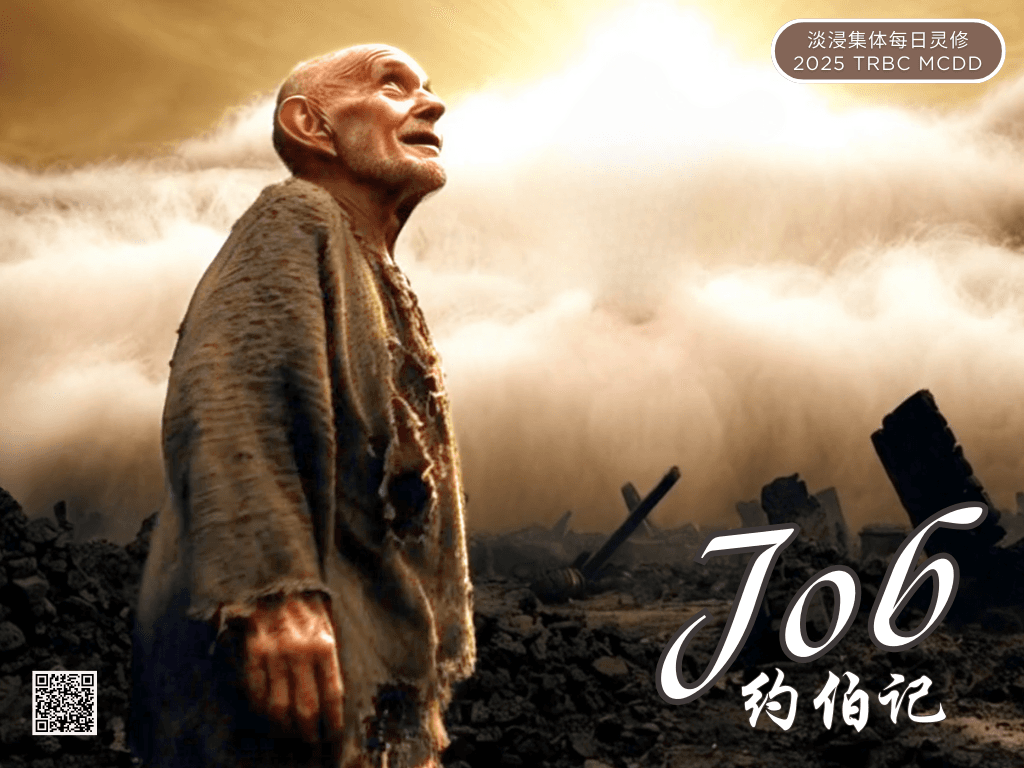Last 5 Days

A Cry of Faith Amid Deep Suffering

Click here to read Ch19
Chapter 19 is Job’s heartfelt response to Bildad’s harsh accusations in the previous chapter. Already devastated by the loss of his children, his health, his livelihood, and his dignity, Job now faces another blow—painful words from a friend who should have brought comfort. Instead of compassion, Bildad adds to Job’s misery with judgment and suspicion.
Feeling utterly overwhelmed, Job cry out, “‘Violence!’ but I am not answered; I call for help, but there is no justice” (v.7). He cries out not just from physical affliction but from emotional and spiritual abandonment. He defends his integrity, insisting he has done nothing to deserve this suffering. He believes he has been wronged, not only by those around him but also by God Himself. His words carry a deep sense of confusion and sorrow: Job cannot understand why he is experiencing such injustice. He longs for a response, but heaven seems silent.
As the chapter progresses, Job’s sense of isolation deepens. He lists the ways (8-12) he feels God has turned against him:
He has blocked his path, preventing progress.
He has hidden understanding from him.
He has stripped Job of honor and dignity.
He has removed his crown—his former place of respect.
He has broken him down on every side.
He has uprooted all hope.
His anger burns against Job.
He treats him as an enemy.
His troops advance against him.
His troops encamp around his tent as if laying siege.
Not only does Job feel forsaken by God, but those closest to him have also abandoned him. His brothers, relatives, close friends, and even his servants no longer acknowledge him. His wife finds him repulsive. Children mock him. He is utterly alone. And perhaps this is one of the deepest pains: to suffer without the comfort of companionship.
Yet in the midst of such despair, a light breaks through. A spark of unshakable faith rises from the depths of Job’s soul. He proclaims in verse 25:
“I know that my Redeemer lives, and at the last he will stand upon the earth.”
What a powerful declaration of faith. Despite everything, Job believes that someone will come to his defense—someone who will restore him and set things right. The Hebrew word used here, go’el, means redeemer, avenger, rescuer. It was the term used for a kinsman who would intervene on behalf of a family member, redeeming land, restoring rights, or avenging wrongs. Even in his confusion, Job holds onto hope. Though he doesn’t understand what God is doing, he believes—deep down—that someone will come to vindicate him.
Who is this Redeemer? The text doesn’t explicitly say. Some suggest Job hoped for a human mediator, as he had mentioned in earlier chapters (Job 9:33; 16:19). But many believe Job is ultimately speaking of God Himself. The Hebrew word go’el, used 44 times in the Old Testament, consistently refers to someone who steps in to rescue, restore, and make things right—just as Boaz did for Ruth as her kinsman-redeemer.
Job didn’t have the full picture. He didn’t know what we know today through the life, death, and resurrection of Jesus. Still, he trusted that his Redeemer was real and that He would have the final word. Job longed for the day when, after all was said and done, he would see God with his own eyes. His heart ached for that moment.
Though still in pain and full of unanswered questions, Job clung to one unshakable truth: his Redeemer lives. He believed that even after his body had wasted away, he would one day see God face to face. And oh, how his heart yearned for that day!
Dear friends, if you have ever walked through sorrow—or are walking through it now—Job’s declaration can be your declaration too. The grief, the loneliness, the longing—it’s all real. But please hear this: your pain is not the end of your story. This broken world is not the final word. Suffering will not have the last say.
One day, just as Job hoped, we too will see our Redeemer face to face. Revelation 21 and 22 remind us of the day when God will make all things new. He will wipe away every tear. There will be no more death, no more mourning, no more crying or pain. We will dwell with Him in perfect peace, forever. So hold fast to this hope. Keep your eyes on Jesus, our living Redeemer. Because He lives, you will too.
Prayer: Lord, You are the God who sees us, even in our darkest moments. Just as You saw Job in his sorrow, You see each of us in ours. Thank You that in the midst of suffering, You are not absent—even when You feel far, You are near. We praise You, Jesus, our Redeemer, for stepping into our brokenness, for carrying our griefs, and for giving us the hope of eternal life. Thank You that we are never alone, because You live. For every heart that is hurting today, bring comfort. For every weary soul, bring rest. For every questioning spirit, bring peace. Lift our eyes above our circumstances to see the promise that one day, we will see You face to face. Until that day, help us walk in faith. Give us strength to endure, hope to carry on, and love that reflects You. In the name of Jesus, our living Redeemer, we pray, Amen.

